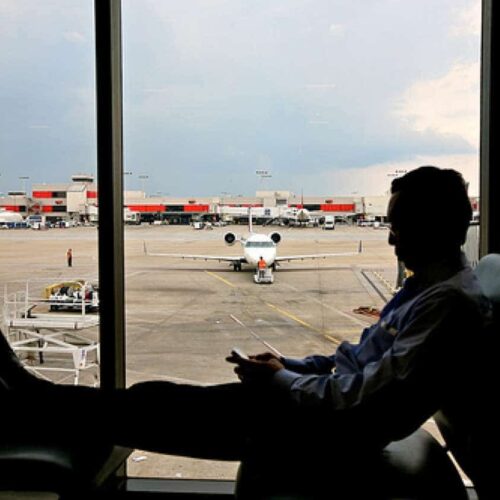Introduction
As political leaders struggle to reduce federal spending, a Veterans Affairs Department watchdog investigation shows there may still be some easy cuts to make. One example: a senior official in the Veterans Health Administration who spent more than $130,900 taxpayer dollars flying to work each week in Washington.
The tab was run up by a Senior Executive Service employee after he was appointed to a Washington-based job on Jan. 20, 2008 “for commuting to and from his personal residence to Washington, D.C. to avoid relocating,” the VA’s inspector general found.
For privacy reasons, the employee’s name and where he lives were not included in the report. Senior Executive Service jobs are typically held by administrators within a federal department or agency, with annual salaries ranging from $119,554 up to $179,700.
Like most employers, the federal government pays approved business travel expenses, but commuting costs must be paid by employees, the IG said. Yet for two and a half years, VA bosses signed off on the unnamed official’s frequent airfare plus week night hotel costs in Washington and a daily food allowance or per diem.
That has some Congressional watchdogs concerned. Billing the government for commuting to work is “cause for alarm,” Sen. Charles Grassley, an Iowa Republican, told iWatch News. “This raises questions about the soundness of basic management decisions.”
Flying to D.C. was a part of the VA official’s regular routine, and about 65 percent of his work days were spent there. “He usually arrived in Washington, D.C., on Mondays at about 8:00 a.m. and departed for home on Fridays at about 2:00 p.m.,” the inspector general’s report noted.
The VA’s deputy under secretary for health for operations and management said it was less expensive for the unnamed official to travel home each weekend than to remain in Washington, according to the report. The cost of each one-way ticket was estimated at between $159 and $260, the inspector general said.
Costs of the commute added to the VA’s already significant travel spending.
Between January 2010 and mid-August of that year, the most recent period from which complete figures were available, the VA spent more than $80 million on travel-related costs, according to the report. During that period, the high-flying official was one of the top five purchasers of airline tickets in the entire department. The only employees who travelled more frequently by air were healthcare providers working with the VA in the Pacific Islands, the inspector general said.
The report, released on June 10, is one of several examples of abuses in travel expenses and in supplemental pay for workers in high-cost areas found by the VA’s internal watchdog. Last October, the IG completed another investigation into supplemental pay abuses, which has not yet been released to the public. Two August 2009 reports detailed similar problems, with some information redacted. In one, the inspector general found that an employee who spent almost 60 percent of her time in Washington had her official office changed to Florida.
As a result, the VA watchdog said it is considering a systemic look at travel by department employees, a move that Grassley said he welcomed. “This case builds confidence that such a review is needed,” he said in an emailed statement. “I plan to urge the inspector general to conduct the agency-wide review.”
So how did the long-distance commute get started?
The employee was reassigned to the Washington job from his position at another location because the VA was having trouble “recruiting a suitable candidate” for the job, the VA deputy under secretary told the inspector general. At one point, the unnamed official offered to move to Washington if the VA would buy his home, a request that was denied.
The VA picked up the commuting tab because it felt his presence in Washington was necessary to “ensure continuity of operations [for his position],” the deputy under secretary told the inspector general.
The report also noted that the “VA had the authority to transfer him… with a 60-day written notice, without conditions.”
On May 31, Dr. Robert Jesse, the VA’s principal deputy under secretary for health, wrote to the inspector general and promised that the department “will initiate requirements for a direct reassignment,” according to a letter attached to the report.
A VA spokeswoman said she could not comment on whether the official has received his 60-day notice, or if the government is still paying for his airfare and lodging commuting expenses.
Read more in Accountability
Accountability
Who will receive government checks, and who will not, if the government defaults?
Accountability
FACT CHECK: Debt default ‘danger’ revisited
Ceiling raised at last minute under Presidents Bill Clinton, George W. Bush


Join the conversation
Show Comments